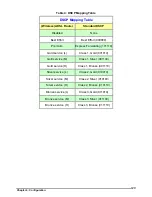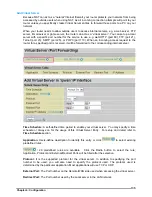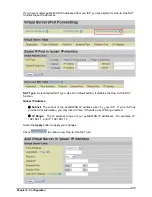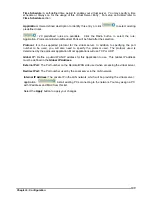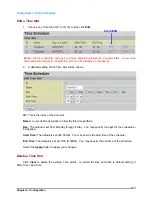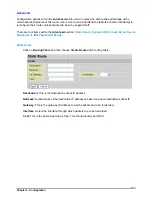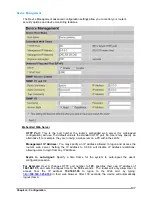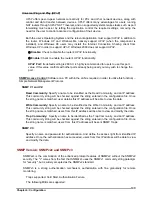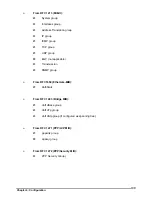
Chapter 4: Configuration
136
Add Virtual Server
Because NAT can act as a “natural” Internet firewall, your router protects your network from being
accessed by outside users when using NAT, as all incoming connection attempts will point to your
router unless you specifically create Virtual Server entries to forward those ports to a PC on your
network.
When your router needs to allow outside users to access internal servers, e.g. a web server, FTP
server, Email server or game server, the router can act as a “virtual server”. You can set up a local
server with a specific port number for the service to use, e.g. web/HTTP (port 80), FTP (port 21),
Telnet (port 23), SMTP (port 25), or POP3 (port 110), When an incoming access request to the
router for a specified port is received, it will be forwarded to the corresponding internal server.
Time Schedule:
A self-defined time period to enable your virtual server. You may specify a time
schedule or Always on for the usage of this Virtual Server Entry. For setup and detail, refer to
Time Schedule
section
Application
: Users-define description to identify this entry or click
to select existing
predefined rules.
:
20 predefined rules are available. Click the Radio button to select the rule;
Application, Protocol and External/Redirect Ports will be filled after the selection.
Protocol
: It is the supported protocol for the virtual server. In addition to specifying the port
number to be used, you will also need to specify the protocol used. The protocol used is
determined by the particular application. Most applications will use TCP or UDP.
External Port:
The Port number on the Remote/WAN side used when accessing the virtual server.
Redirect Port:
The Port number used by the Local server in the LAN network.








